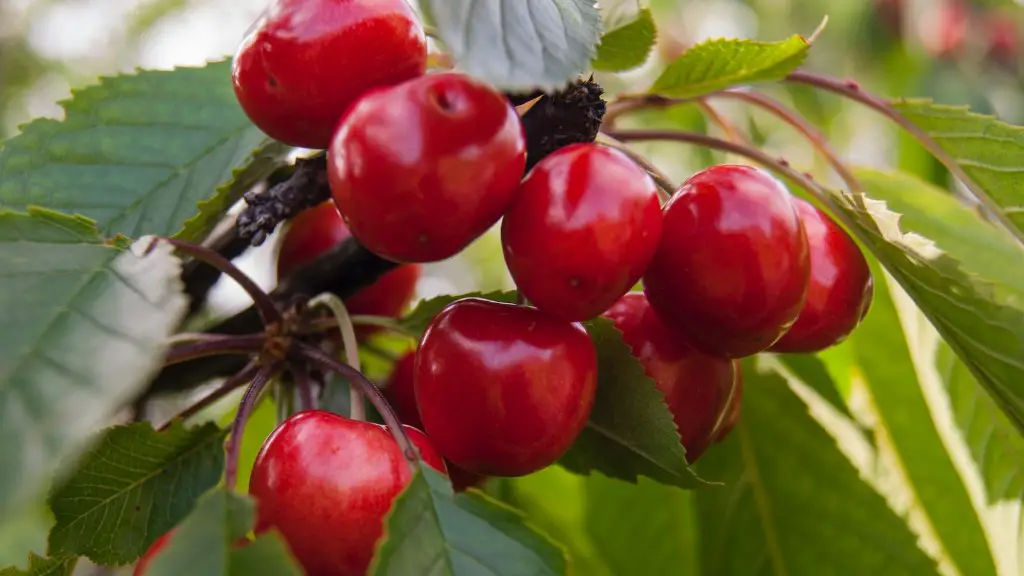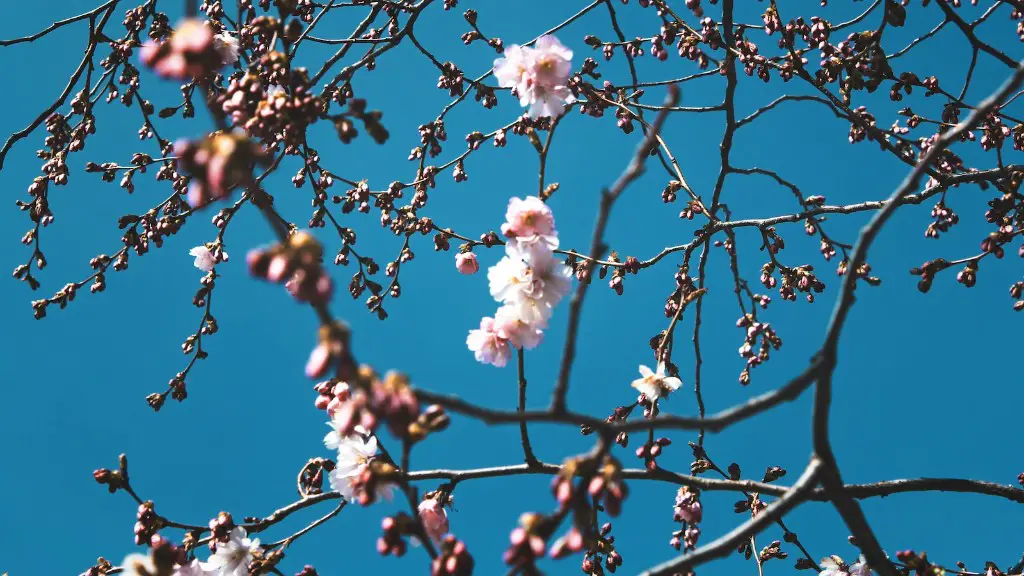Reasons for the Timeframe of a Cherry Tree Bearing Fruit
A cherry tree takes several years to produce its first harvest, so it’s important to understand why it takes so long for a cherry tree to bear fruit. In general, it can take four to five years for a cherry tree to bear fruit. The amount of time it takes depends on the variety of cherry tree and the environment it is planted in. Below are some of the reasons a cherry tree takes four to five years to bear fruit.
Maturation Period
Cherry trees need time to reach maturity. Fruit trees, like any other plant, take time to mature. Trees need to slowly grow and build up their root systems, develop the correct size and shape of the canopy, and strengthen their branches and trunk. The dormancy period, or time in between dormancy and flowering, is when the tree prepares for growth, flower development, and fruiting in the spring. The dormancy period sets the tree up for the season, and sets the tree up for the years to come.
Harvest Cycle
Fruit takes time to develop. Most tree fruits develop from fertilised flowers. The fertilised flower will then develop into a fruit. This process takes several months. Once the fruit is formed, it needs to ripen until it is ready for harvesting. This can take several months as well. Although cherries are counted as small fruits, cherries takes the same amount of time as larger fruits to ripen.
Climate and Soil
The climate and soil are important considerations when it comes to cherry tree growth and fruiting. Different climates and soils impact the length of time it takes for a tree to bear fruit. Soil pH, amount of sunlight, temperature, and water availability can also play a role in the time it takes for a cherry tree to bear fruit. Trees need to absorb a certain amount of these elements to be able to form flowers and fruits.
Age of the Tree
The age of the tree is another consideration when it comes to bearing fruit. These trees typically bear fruit later in life, so the age of the tree needs to be taken into account when estimating the time it takes for a cherry tree to bear fruit. Trees that are planted too late may not have enough time to mature and bear fruit in the expected timeframe.
Growth and Vigor of the Tree
The growth and vigor of the tree also play an important role in the time it takes for a tree to bear fruit. Trees that are in a better environment or with more sunlight may produce fruit sooner. Healthy trees will also be more vigorous and produce more fruits in a shorter period of time.
Variety of Cherry Tree
The variety of cherry tree also affects the time it takes for the tree to bear fruit. Some varieties of cherry trees are able to produce fruit sooner than other varieties. Sweet cherries, for example, will usually bear fruit sooner than tart cherries, while tart cherries tend to have a longer time frame to bear fruit.
Pruning and Care
Good pruning and care are important for a tree to be healthy and bear fruit within the expected time frame. Pruning helps treeshave a better structure, which helps with sun exposure, reducing the amount of competition for nutrients and water, and preventing disease and pests. Additionally, if trees are well taken care of, they are more likely to be healthy, and will produce fruit faster.
Planting Site Location
The location of the cherry tree is also important to consider. Certain soil types and temperatures are better suited for growing cherry trees and will accelerate the time it takes for a tree to bear fruit. If a tree is planted in a location that is not suitable, it will take longer for the tree to bear fruit, or the fruit won’t be produced at all.
Fertilization and Nutrition
Fertilization and nutrition are key to a cherry tree bearing fruit in a timely manner. Trees need certain nutrients from the soil in order to grow and bear fruit. If the soil is deficient in certain nutrients, the tree won’t be able to absorb them from the soil and won’t be as productive. Applying appropriate fertilizers and nutrients can help trees bear fruit sooner.
People’s Responsibility to Support Trees
It is important for people to take responsibility for supporting the growth of their cherry trees. Healthy trees are more likely to bear fruit sooner, and people can help their trees by providing water, nutrients, and controlling pests and diseases. Additionally, people need to have realistic expectations when it comes to the time it takes for a cherry tree to bear fruit.
Pollination and Weather Conditions
Pollination and weather conditions can also affect the time it takes a cherry tree to bear fruit. Trees need adequate pollination to set fruit, and the pollination season can range from tree to tree. Weather conditions can either help in pollination or hinder it. Cold, wet, or dry weather can impact how successful the pollination will be, and whether or not the tree will set fruit.
Conclusion
In conclusion, the time it takes for a cherry tree to bear fruit depends on several factors such as maturity period, harvest cycle, climate and soil, age of the tree, vigor and health of the tree, variety of cherry, pruning and care, planting site location, fertilization and nutrition, as well as pollination and weather conditions. Taking proper care of your cherry tree and giving it the time it needs to produce fruit will result in more fruitful harvests.


